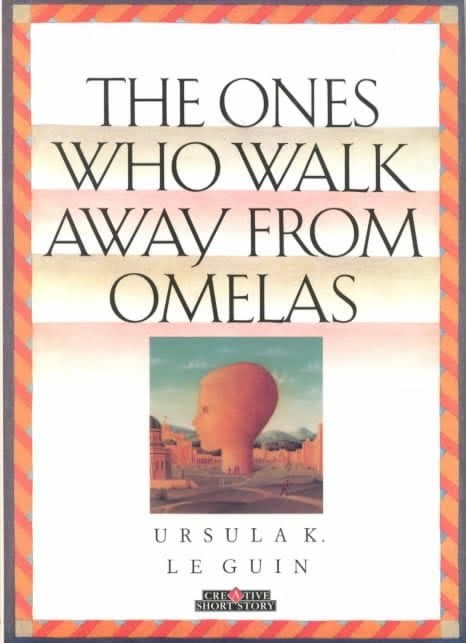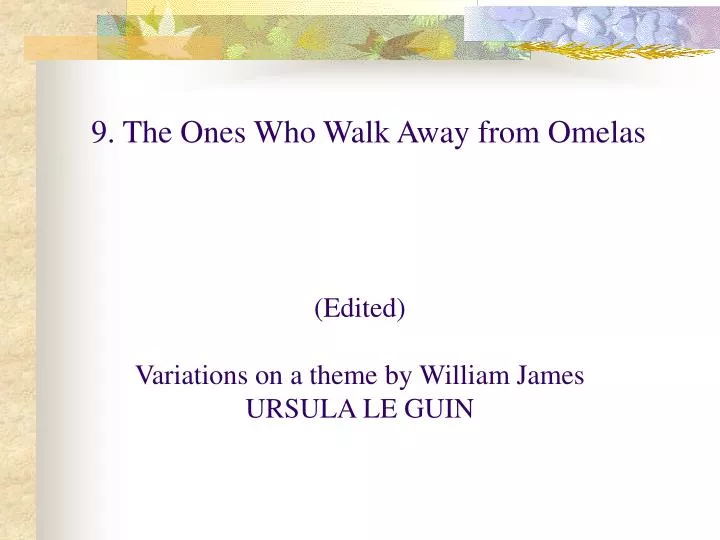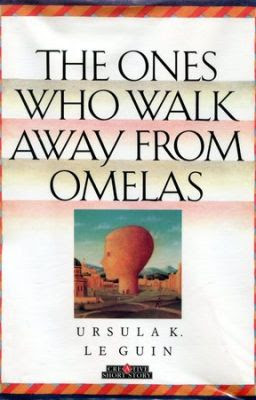

However, any conclusions about the significance and the causes of the child suffering are left by the narrator at the disposal of the reader.īased on the context and the insight of the story, the story can be concluded that it is Apollonian. The poor seem to work for the wealthy and the few happy ones. In this context, the suffering child is used to represent the wealthy and the poor. Ritchie (2016) postulated that allegories are stories that describe events and represents events in a metaphorical manner. Thus, the child is depicted as the life saver since its misery makes life possible. If the child is to let out of the house and given the opportunity to enjoy life as the Omelas, then suffering is bound to befall the people of Omelas. The narrator makes the reader understand that the child suffering is in exchange for the happiness of the people of Omelas. According to Nugroho (2016), the scapegoat is the act of laying the blame on someone instead of others. From the story of the suffering child, the idea of scapegoat arises. However, the narrator shifts from the celebration and narrates the misery of a child locked in a house secluded from the Omelas. The matching of the people and the singing shows the happiness that dominates among them. In the introduction, the story gives the details of the Festival of Summer celebrated by the Omelas. They cannot live with the guilt of knowing what all their happiness is thanks to, but at the same time cannot ruin everyone else’s happiness with their own selfishness of wishing to save the child, so they walk away into the unknown. The child would never be able to adapt since it has been suffering for so long, so what would be the point? The significance of these people walking away from this ‘utopia’ is that they’re actually more human and compassionate than the people who live inside of Omelas. Everyone is bothered when they first see the child, but then try to convince themselves that even if they saved the child there’s no way it could appreciate life because of how much it has suffered already. Those who go and see the child sometimes “fall silent for a day or two, and then leave home… straight out of the city of Omelas” It completely stuns them, as it also did me, to see a child being treated so poorly. Omelas shouldn’t be called a perfect place because not everyone is happy living inside of it. To walk away from Omelas means to reject everything that Omelas is.

In order for everyone who lives in Omelas to continue living their happy lives it all depends on the misery of a child they are not allowed to show any kindness to.

Le Guin has written a very dark dystopian world in the story “The Ones Who Walk Away from Omelas.” She makes out Omelas as a utopia where everyone who lives there is happy all because they live on the suffering of one single child.


 0 kommentar(er)
0 kommentar(er)
